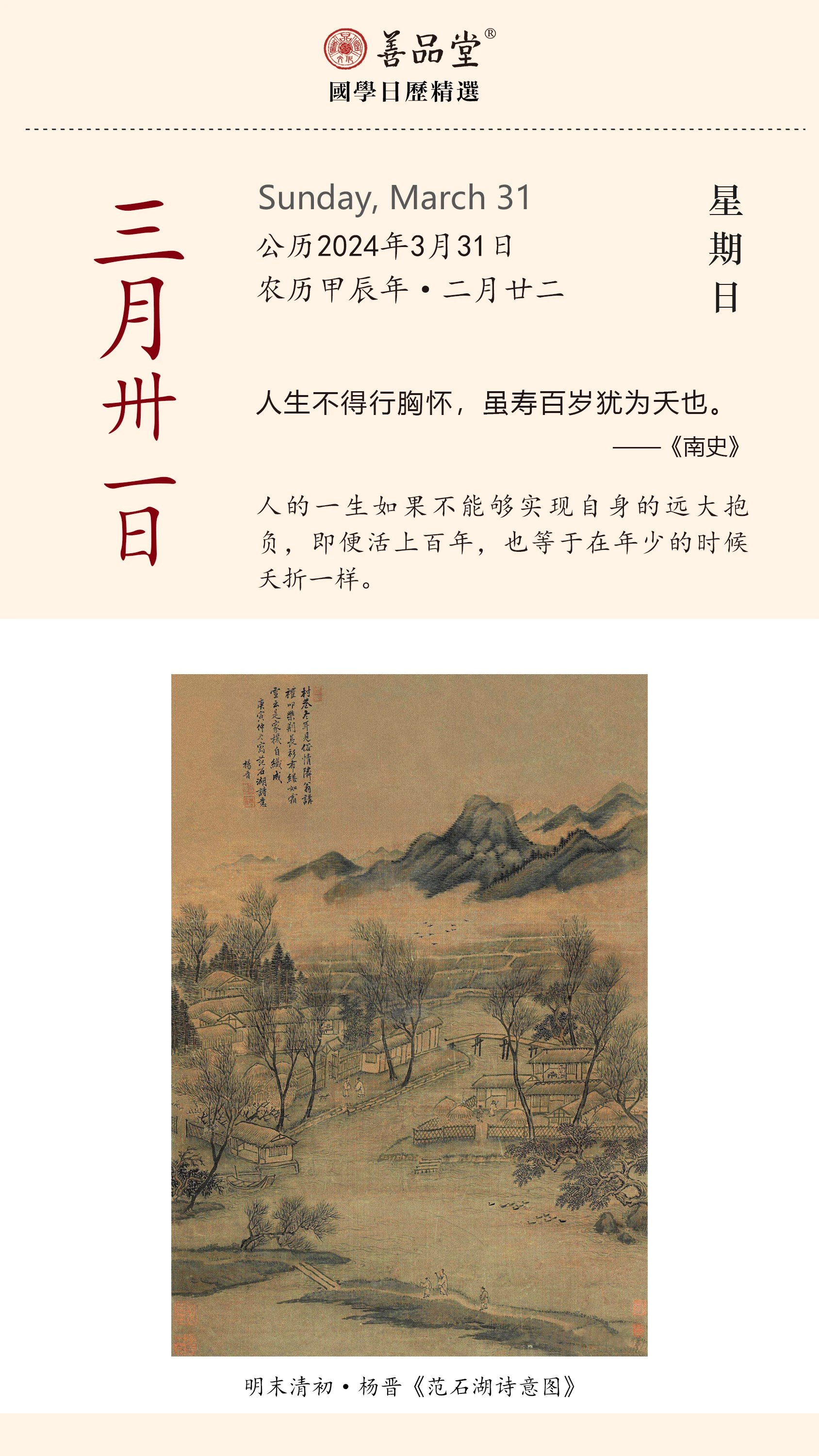#国学# #资治通鉴# #每天读点资治通鉴#
Boyun notes
Boyun Classic Morning Reading (1473): The Sixty-fourth Volume of the Zizhi Tongjian Volume - the fourth paragraph of the Fifty-sixth Book of the Han Dynasty:
Original:
The secretary, supervisor, and waiter Xun Yue made five articles of "Shen Jian" and played it. Yue, the brother of Shuang. The current politics is in the Cao family, the Son of Heaven is respectful, Yuezhi is in the replacement, and the plan is useless, so it is a book. It roughly said: "The art of politics is to screen the four troubles first, and it is to worship the five politics." Pseudo-vulgarity, private bad law, deviance, extravagance: if the four are not removed, then the government will be carried out at the end of the government, which is called the four troubles. It is said that the five politics are the five politics of rejuvenating agriculture and mulberry to support their livelihood, judging good and bad to correct their customs, preaching literature and teaching to regulate their customs, establishing military equipment to uphold their authority, and rewarding and punishing them to unify their laws. No man shall fear death, nor shall he be afraid of sin; Therefore, in the above, the first abundance of people's wealth to determine their ambition is called health. Good and evil depend on merit and crime, reputation is effective in verification, listen to words and blame, name and truth, and there is no or deception to deceive the hearts of the people. Therefore, there are no treacherous monsters in the customs, and there is no adultery among the people, which is said to be a righteous custom. Those who honor and disgrace are the essence of reward and punishment, so the honor and disgrace of etiquette and disgrace are added to the gentleman and his feelings are transformed; If the abolition of education, pushing people and falling into the domain of villains, the line of education, leading people to be included in the gentleman's Tu, is called a chapter. Those who are above must have weapons to guard against danger, and those who live in peace will send them to the inside, and if there is something to do, they will use the army, which is called Bingwei. Reward and punishment, the handle of government. If the lord of a man does not reward in vain, he does not love his wealth, and if he rewards his deeds, he will not persuade him, and if he does not punish him in vain, he will not punish the evil. If you don't reward and don't persuade, it is said to stop good, and if you don't punish it, you can't punish it. If the superior can not only be good at the bottom, but also evil at the bottom, then the national law will be established. It is the law of the predicate. The four troubles are independent, the five politics are standing, the line is sincere, the guard is solid, the simplicity is not slack, the negligence is not lost, the arch is perpendicular, and the sea is peaceful. ”
Interpretation:
Xun Yue is a very influential descendant of Xunzi in the Spring and Autumn Period, a famous political commentator and historian in the late Eastern Han Dynasty, his grandfather is the famous scholar Xun Shu, and his father is the eldest son of the Xun Eight Dragons, and he is the cousin of Cao Cao's strategist Xun Yu.
However, Xun Yue, who was born as the secretary and supervisor of Emperor Xian of the Han Dynasty at that time, because Cao Cao controlled the government, his personal thoughts and ambitions could not be brought into play.
"Shen Jian" is the concentrated embodiment of Xun Yue's strategy for governing the country, which simply means "eliminating the four troubles and advocating the five politics." "I think these principles and principles are also very practical and instructive in the current organizational management.
First of all, organizational management needs to eliminate four problems:
1. Eliminate hypocrisy - that is, to eliminate the atmosphere of not seeking truth from facts in the organization, and establish an atmosphere of respecting facts and basic laws;
2. Eliminate private law - that is, to eliminate the phenomenon that private law is greater than public law and private interests are greater than public interests in the organization;
3. Elimination - that is, to eliminate laissez-faire and rule-ignoring personnel in the organization;
4. Eliminate luxury - that is, to eliminate extravagance and waste in the organization, and spend it at will;
It is necessary not only to eliminate the above four evils, but also to establish a culture, system, and strength of "advocating the five policies" at the same time.
The so-called Chongwu Zheng refers to:
1. Xingnongsang: This is to solve the basic material security for the personnel in the organization and meet people's material pursuits in different periods;
2. Review likes and dislikes: Regarding what is right and what is wrong in the organization, unified values must be established to review;
3. Propaganda and education: the mission of the organization, the vision of the organization, the rules of behavior of the organization, etc., need a complete set of cultural implementation system to guarantee;
4. Armed Preparation: Ensure that the power and responsibility systems can be implemented smoothly and effectively in the operation and governance of the organization;
5. Clear rewards and punishments: The operation of the organization is inseparable from the construction of a flexible and targeted incentive system.
In an organization, the "four troubles" can be eliminated, the "five policies" can be upheld, these methods can be sincerely implemented, these principles are firmly guarded, even simple things should not be slackened in these principles, and even if things are neglected, these principles cannot be lost. When these principles and methods are in place, the highest level of organizational governance can be achieved: rule by doing nothing!
